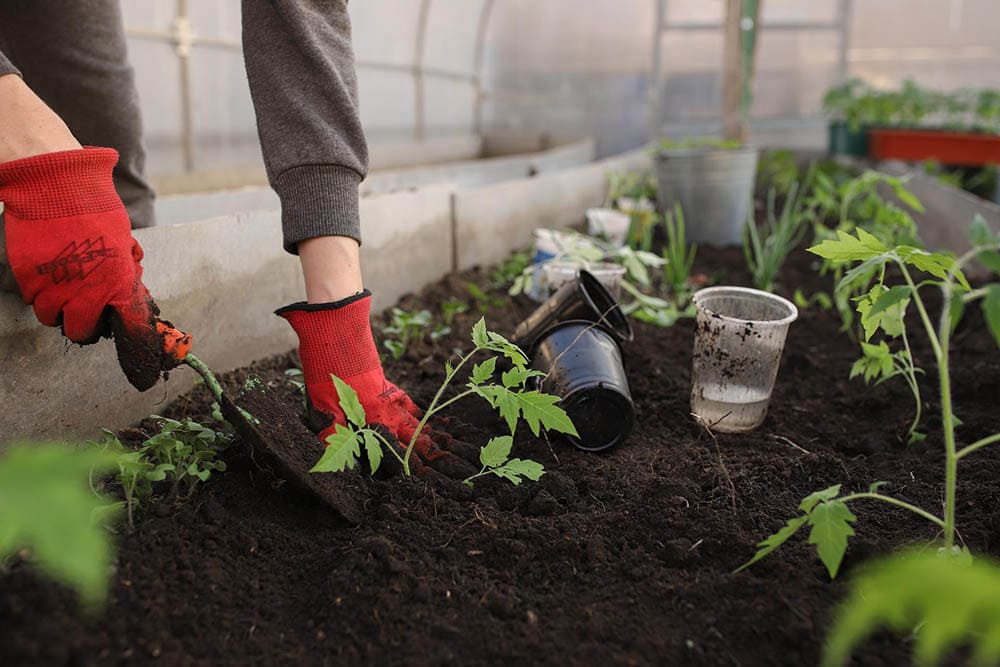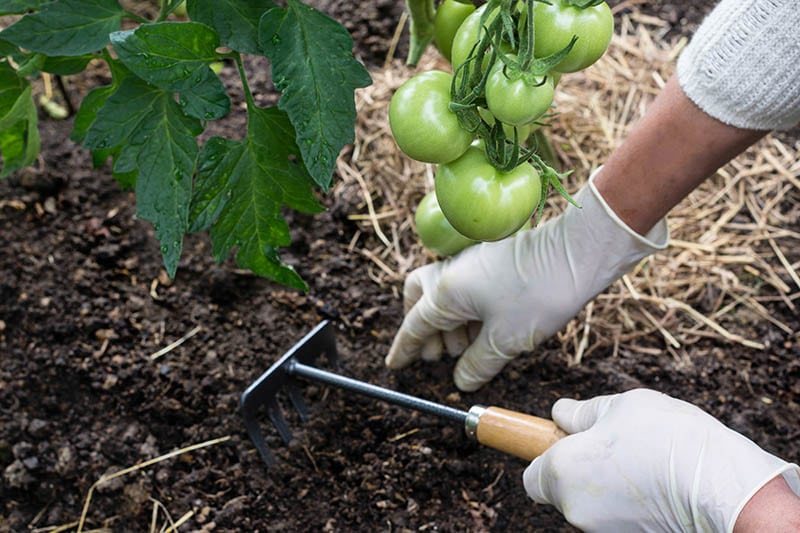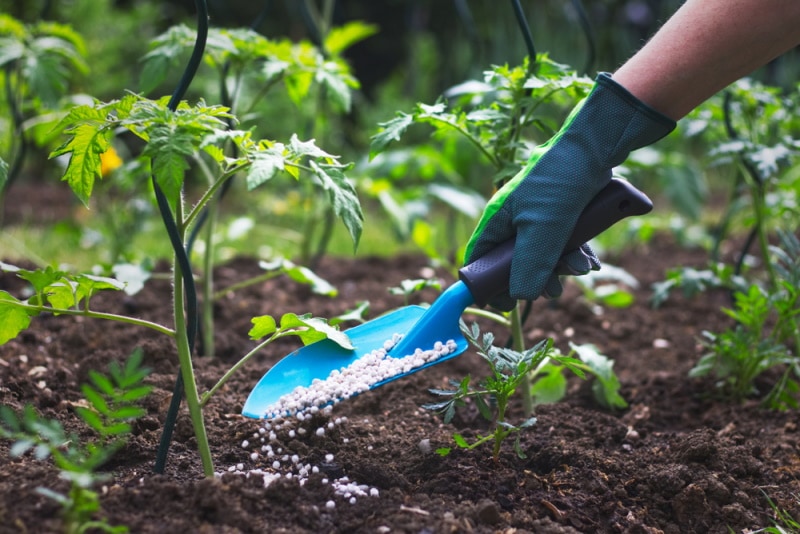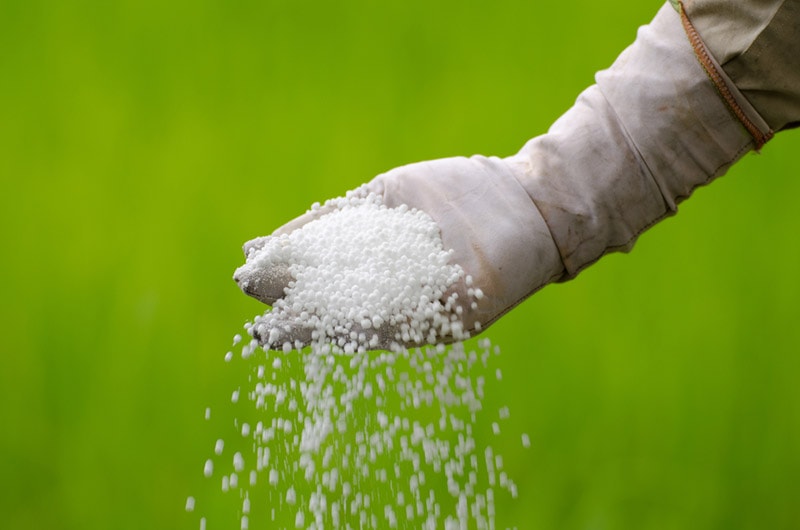Do Tomatoes Like Acidic Soil? pH Scale Explained
-
Pete Ortiz
- Last updated:

Tomatoes are a popular crop for home gardeners, but it’s important to understand the soil that tomatoes prefer to ensure good yields. One of the most important factors is the soil’s pH level—the measure of its acidity or alkalinity. So, do tomatoes like acidic soil? The answer is yes; most tomatoes prefer slightly acidic soil between 6.2 and 6.8 on the pH scale.
Learn more here about the soil needs for the tomato plant and why slightly acidic soil is best. We’ll also look at what happens when the soil pH is too high or too low for tomatoes.
The pH Scale: Basics
First, it’s important to understand the pH scale and how it works. The pH scale runs from 0 to 14, with 7.0 being neutral (neither acidic nor alkaline).1 Soils that are below 7.0 are considered acidic, and those above 7.0 are considered alkaline. As noted, tomatoes prefer a slightly acidic soil type (6.2 to 6.8 pH value).2

Understanding Soil Acidity and Alkalinity
With the above information in mind, why do tomatoes prefer more acidic soil? The answer lies in the nutrients that are present in the soil. In acidic soils, certain essential nutrients needed for plants—such as magnesium, calcium, and potassium—are more easily available.
On the other hand, alkaline soils tend to have too much calcium and not enough magnesium and potassium. Plus, acidic soils tend to be better at holding onto important nutrients like nitrogen and phosphorus, making them more readily available for plants.
Finally, acidic soil has a higher concentration of organic matter (which helps support beneficial microorganisms) and a better water-retention rate, both important for optimal tomato growth.
Effects of Too Much or Too Little Acidic Soil
But what happens if the soil pH is too low (more acidic than 6.2) or too high (more alkaline than 6.8)? If the soil is too acidic, certain important nutrients such as phosphorus, calcium, and magnesium can be locked up in the soil—unavailable to the plant.
What Does High pH Do to Tomatoes?
If the pH is too high (more alkaline than 6.8), important minerals like potassium, nitrogen, and iron will become less available. This can stunt tomato growth and even lead to nutrient deficiencies that will reduce yields.
How to Ensure Proper Soil pH for Tomatoes
Now that you understand the importance of proper soil pH for tomatoes, it’s important to know how to achieve and maintain it. The easiest way is to use a soil test kit to measure the pH level. If the level is too high or too low, you can use soil amendments such as sulfur or lime to adjust the pH value.
It is important to use the right amount of amendment so as not to overdo it. Applying too much lime can raise the pH level beyond what tomatoes prefer, while too much sulfur can lower it and create an environment that is too acidic for tomatoes.
Once your soil has been amended, you’ll want to make sure you maintain the soil pH level by monitoring it regularly. Check your soil every few months to make sure it is not becoming too acidic or alkaline.
If you notice the pH getting out of range, you can add the necessary amendments to adjust it back to an ideal level.

Mulch
Mulching is another great way to keep the soil at its ideal pH level. Mulch prevents the soil from getting too dry, which can lead to a drop in the soil’s pH level. It also helps keep weeds at bay, so there is less competition for nutrients between your tomato plants and other plants.
Fertilizers
You can also use fertilizers designed specifically for tomatoes, which will supply them with necessary nutrients and help maintain the ideal pH level. When using fertilizers, be sure to use a fertilizer that is specifically made for tomatoes to ensure you are providing the right nutrients in the right amounts.
By following these steps, you can ensure that your tomatoes get the right amount of soil acidity and nutrition they need to grow and thrive. With proper soil pH management, your tomatoes are more likely to produce a bountiful harvest.

Conclusion
Now that you know what kind of soil tomatoes prefer, you can work on maintaining a pH level between 6.2 and 6.8. Remember, anything lower than 6.2 could cause nutrient deficiencies or other issues with your plants, while anything higher than 6.8 can stunt their growth and reduce yields.
To ensure a healthy crop of tomatoes, make sure you test the soil pH level before planting and regularly monitor it during the growing season. With proper soil management, you can ensure that your tomatoes thrive in their acidic environment.
- https://www.usgs.gov/media/images/ph-scale-0
- https://newswire.caes.uga.edu/story/5822/homegrown-tomatoes.html
- https://homeguides.sfgate.com/amount-ph-needed-grow-tomatoes-45120.html
- https://greenupside.com/do-tomato-plants-like-acidic-soil-6-ways-to-adjust-ph/
- https://www.finegardening.com/article/a-soil-ph-primer-getting-it-right-gets-results
- https://www.wikihow.com/Prepare-Garden-Soil-for-Tomatoes
- https://homeguides.sfgate.com/amount-ph-needed-grow-tomatoes-45120.html
Featured Image Credit: Katya_Ershova, Pixabay
Contents


